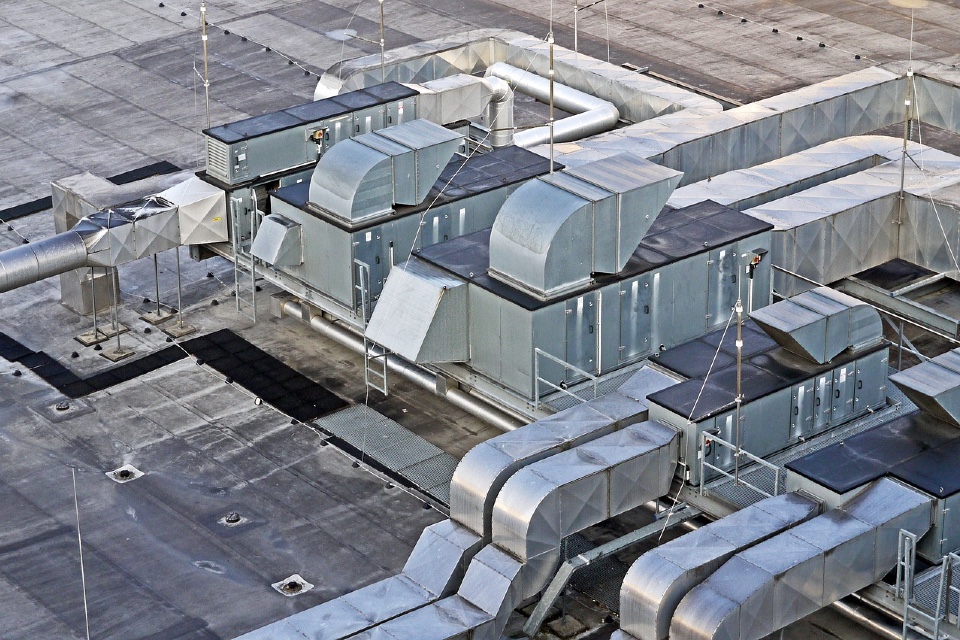In the realm of facilities management, HVAC (Heating, Ventilation, and Air Conditioning) systems play an indispensable role in maintaining comfort and air quality. As part of our focus this month on HVAC, we summarise the latest technological advancements and sustainability concerns…
Firstly, the integration of IoT (Internet of Things) in HVAC systems is becoming increasingly prevalent. IoT-enabled HVAC systems offer real-time monitoring and control, facilitating proactive maintenance and increasing energy efficiency. They can adjust automatically to changes in weather or occupancy, saving energy and reducing operational costs. Additionally, these systems can predict and identify potential issues, alerting facilities managers before significant problems arise.
Secondly, the shift towards greener, more sustainable HVAC solutions is gaining momentum. Energy-efficient HVAC systems, utilising technologies like geothermal heat pumps, solar-powered cooling, and waste heat recovery, are becoming more common. They not only reduce energy consumption and costs but also contribute to sustainability goals, aligning with the global trend towards reducing carbon footprints.
The rise of AI (Artificial Intelligence) and Machine Learning (ML) in HVAC systems is another significant trend. AI and ML can analyse vast amounts of data from the HVAC system and other building systems, optimising performance, predicting equipment failure, and providing insights for better decision-making.
Another emerging trend is the use of Variable Refrigerant Flow (VRF) systems. These systems allow for precise control over the heating and cooling of individual zones within a facility, enhancing comfort and reducing energy consumption. Their flexibility and scalability make them a popular choice for diverse facilities.
The increasing focus on Indoor Air Quality (IAQ) is also notable, especially in light of the COVID-19 pandemic. More facilities are investing in HVAC technologies that improve IAQ, such as air purifiers, UVGI (Ultraviolet Germicidal Irradiation) systems, and advanced filtration systems. These technologies can remove pollutants, allergens, and pathogens, enhancing occupant health and wellbeing.
Lastly, the trend towards HVAC as a Service (HVACaaS) model is emerging. This subscription-based model allows facilities to outsource their HVAC operations, including maintenance and upgrades. It reduces upfront costs, provides access to the latest technologies, and allows facilities managers to focus on their core operations.
The trends shaping HVAC solutions in facilities management reflect a broader shift towards smart, sustainable, and health-focused solutions. As these trends continue to evolve, facilities managers must stay abreast of the latest technologies and practices to maximise comfort, efficiency, and sustainability in their buildings.
The ultimate goal remains to create a healthy, comfortable, and productive environment for occupants, while balancing operational efficiency and sustainability concerns.
Are you searching for HVAC solutions for your company or organisation? The Facilities Management Forum can help!
Image by Erich Westendarp from Pixabay







